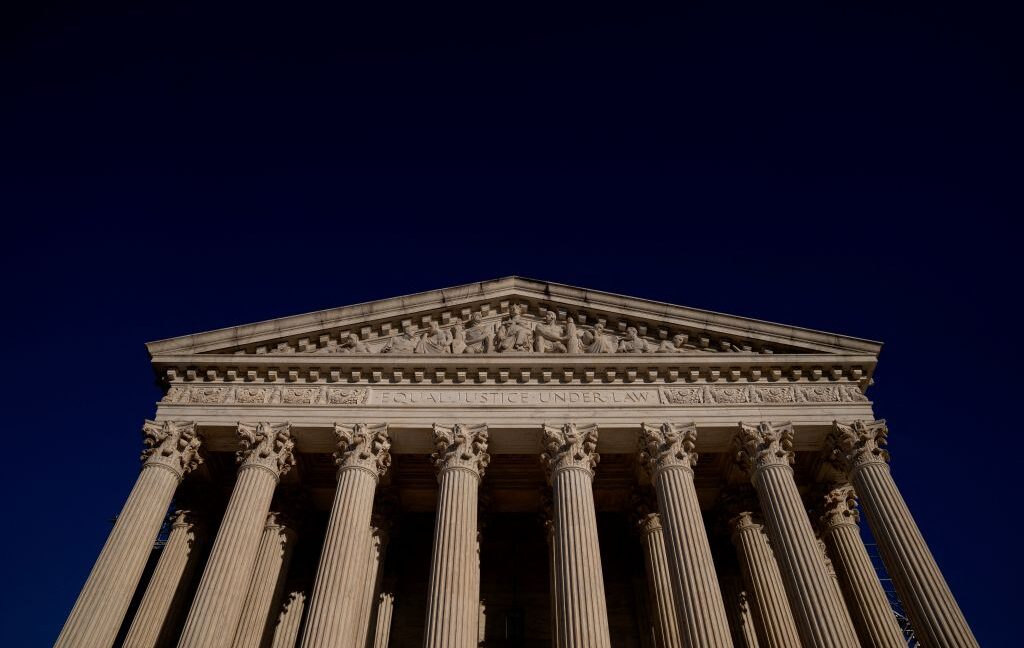On Wednesday, the Supreme Court confirmed it would review whether a federal law that could ban or force a sale of TikTok is unconstitutional.
The announcement came just one day after TikTok and its owner ByteDance petitioned SCOTUS for a temporary injunction to halt the ban until the high court could consider what TikTok claimed is "a massive and unprecedented speech restriction" ahead of a change in US presidential administrations.
“We’re pleased with today’s Supreme Court order," TikTok said in a statement. "We believe the Court will find the TikTok ban unconstitutional so the over 170 million Americans on our platform can continue to exercise their free speech rights.”
But while SCOTUS agreed to review the key question that remains for TikTok—whether the Protecting Americans from Foreign Adversary Controlled Applications Act violates the First Amendment—the court declined to order the injunction that TikTok sought.
"Consideration of the applications for an injunction pending review presented to The Chief Justice and by him referred to the Court is deferred pending oral argument," the court's announcement said.
Instead, the court has laid out a rapid timeline to ensure that TikTok's concerns are weighed before the law's enforcement kicks in on January 19. Both TikTok and the Department of Justice must file briefs by December 27, then have just one week to submit replies before oral arguments begin on January 10.
TikTok has "good case," civil liberties expert says
For TikTok, the stakes couldn't be any higher. If the Supreme Court decides that US national security interests seeking to prevent the Chinese government from covertly controlling content on the app and influencing or tracking American users, TikTok will be forced to shut down the app in the US just days after taking a last stand in court.
However, some legal experts continue to insist that TikTok has a winning argument. Civil rights groups like the Electronic Frontier Foundation (EFF), the American Civil Liberties Union, the Knight First Amendment Institute, Free Press, and PEN America all supported TikTok in its fight to block the law.
EFF's civil liberties director, David Greene, told Ars that he thinks that TikTok has a "good case," partly because the lower court appeared to be "overly deferential to the US government's assertions of national security concerns." Most strikingly, the US successfully argued that a ban was needed to prevent feared future harms to national security rather than proven harms that exist now.
According to Greene, it was "quite unusual" that the lower court seemingly "allowed the government to restrict speech based on the prospect that future speech would be bad," which really "doesn't happen in First Amendment cases."
If TikTok wins, it's possible that portions of the law specifically targeting TikTok will be cut, but that could potentially still leave TikTok vulnerable to attacks under the law. A better outcome for TikTok would be a finding striking down the law entirely.
Greene told Ars that it's "anybody's guess" how the law would be enforced should TikTok lose its Supreme Court fight. But TikTok has repeatedly shown that it's technically and commercially infeasible to sell the app in the limited timeframe left ahead of enforcement, which suggests that TikTok could be forced to pull the plug before it is ready—a move that it claims could risk disrupting users globally.
For the Supreme Court, a key concern might be that the law doesn't just potentially threaten speech on TikTok but grants considerable leeway for the government to possibly restrict speech on other platforms. What the court decides could have broad implications for speech online, TikTok has warned, claiming there was no evidence showing the government considered less restrictive alternatives.
While the controversial US law doesn't necessarily ban TikTok, it does seem designed to make TikTok "go away," Greene said, and such a move to interfere with a widely used communications platform seems "unprecedented."
"The TikTok ban itself and the DC Circuit's approval of it should be of great concern even to those who find TikTok undesirable or scary," Greene said in a statement. "Shutting down communications platforms or forcing their reorganization based on concerns of foreign propaganda and anti-national manipulation is an eminently anti-democratic tactic, one that the US has previously condemned globally."
Greene further warned that the US “cutting off a tool used by 170 million Americans to receive information and communicate with the world, without proving with evidence that the tools are presently seriously harmful" would "greatly" lower "well-established standards for restricting freedom of speech in the US."
TikTok partly appears to be hoping that President-elect Donald Trump will disrupt enforcement of the law, but Greene said it remains unclear if Trump's plan to "save TikTok" might just be a plan to support a sale to a US buyer. At least one former Trump ally, Steven Mnuchin, has reportedly expressed interest in buying the app.
For TikTok, putting pressure on Trump will likely be the next step, "if the Supreme Court ever says, 'we agree the law is valid,'" Greene suggested.
"Then that's it," Greene said. "There's no other legal recourse. You only have political recourses."
Like other civil rights groups, the EFF plans to remain on TikTok's side as the SCOTUS battle starts.
"We are pleased that the Supreme Court will take the case and will urge the justices to apply the appropriately demanding First Amendment scrutiny," Greene said.


